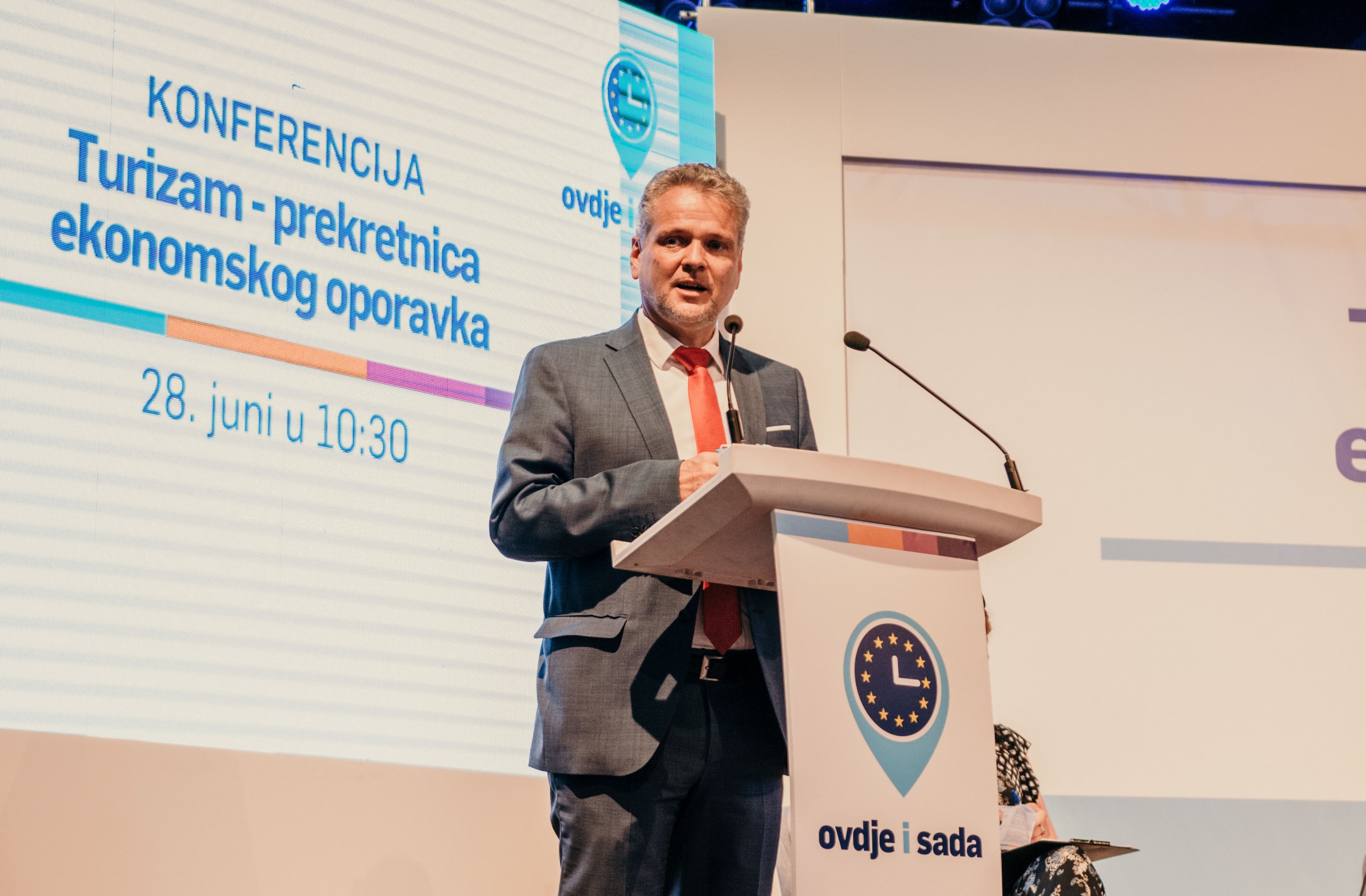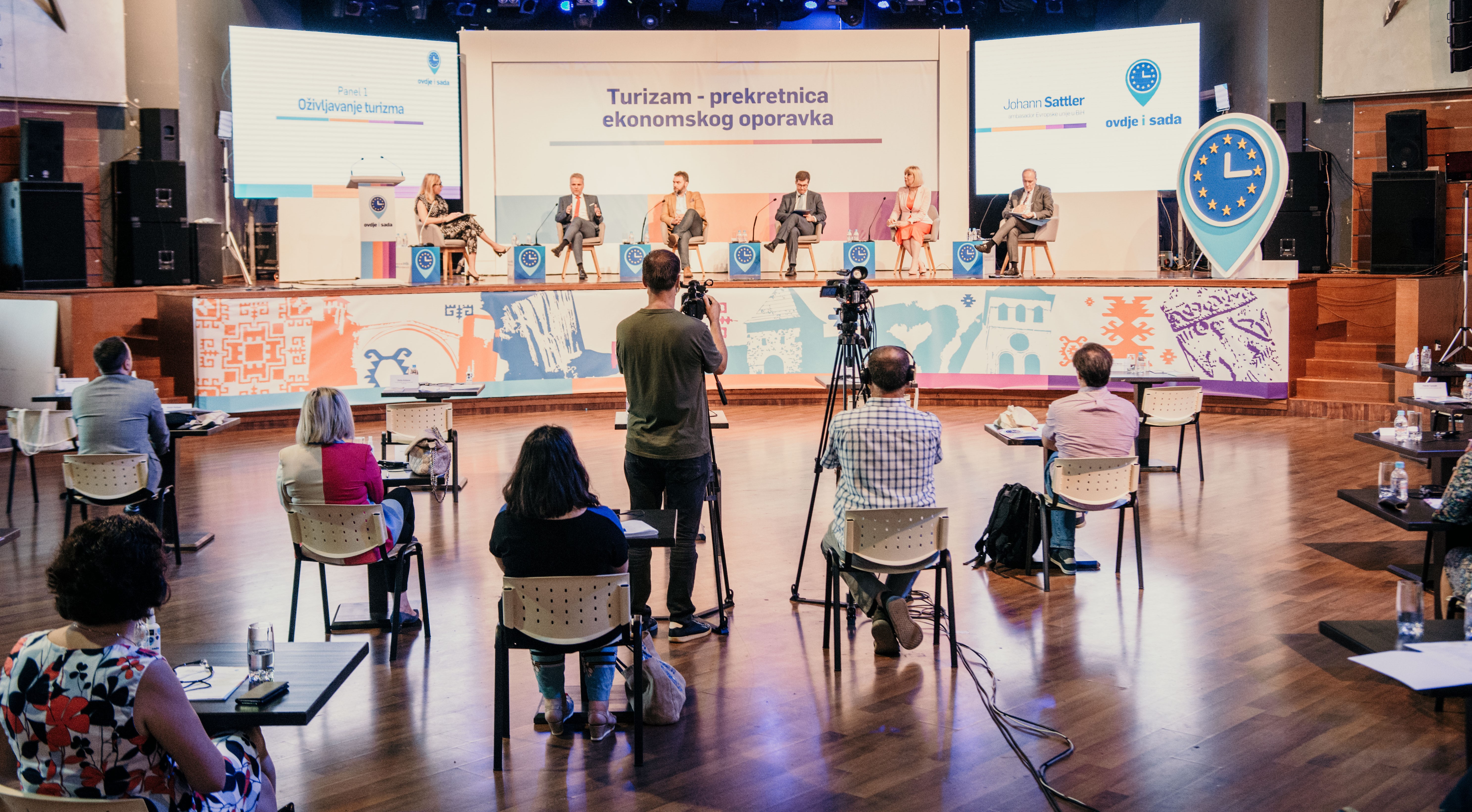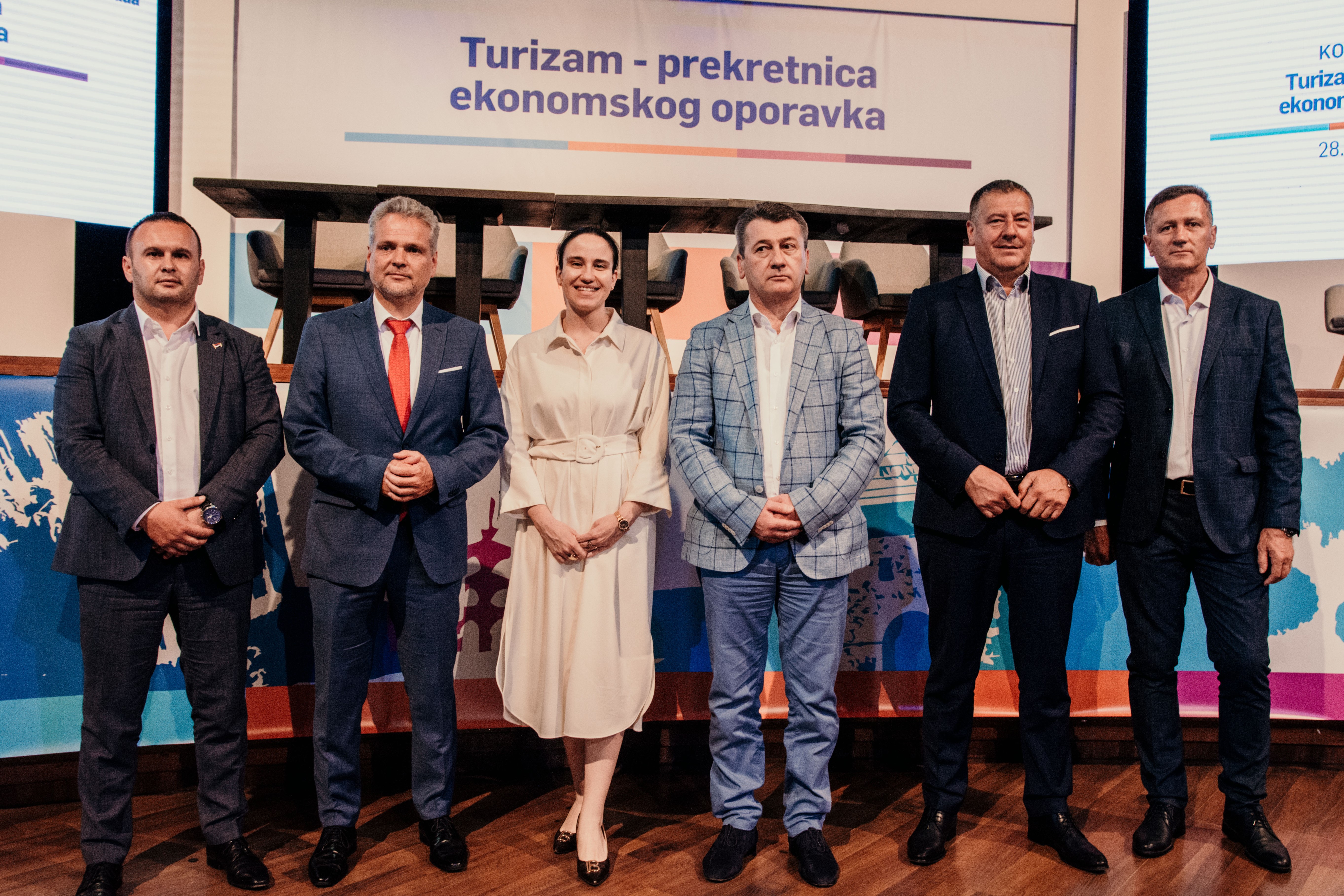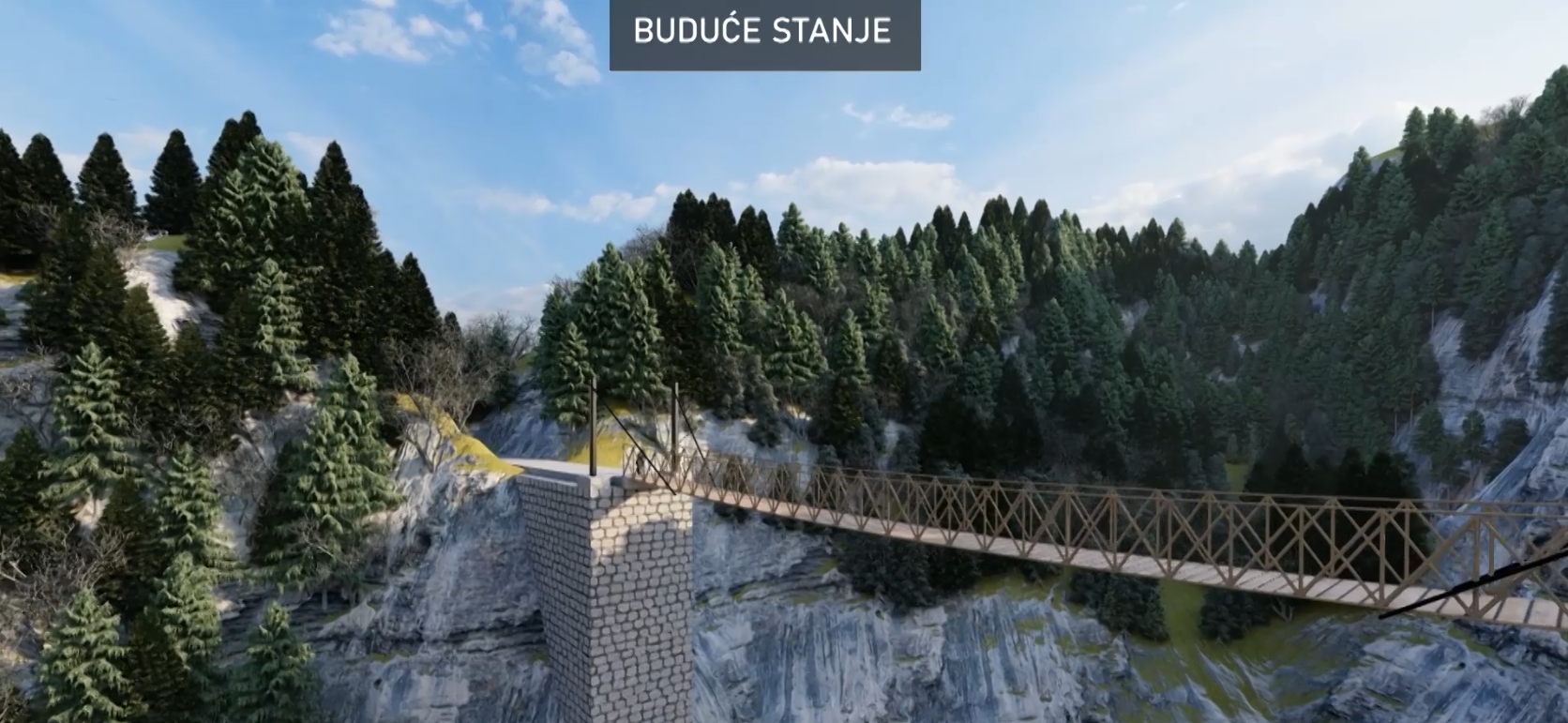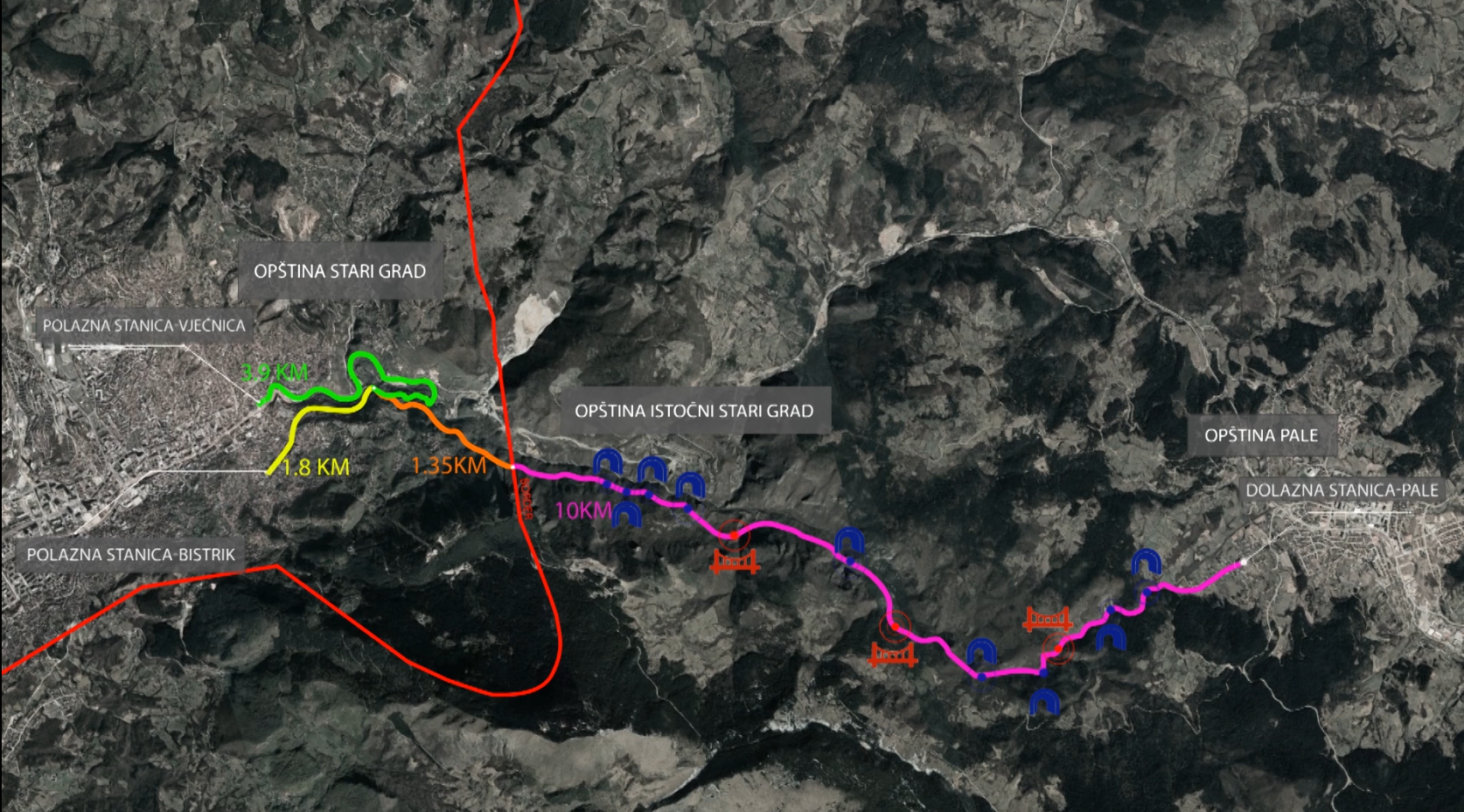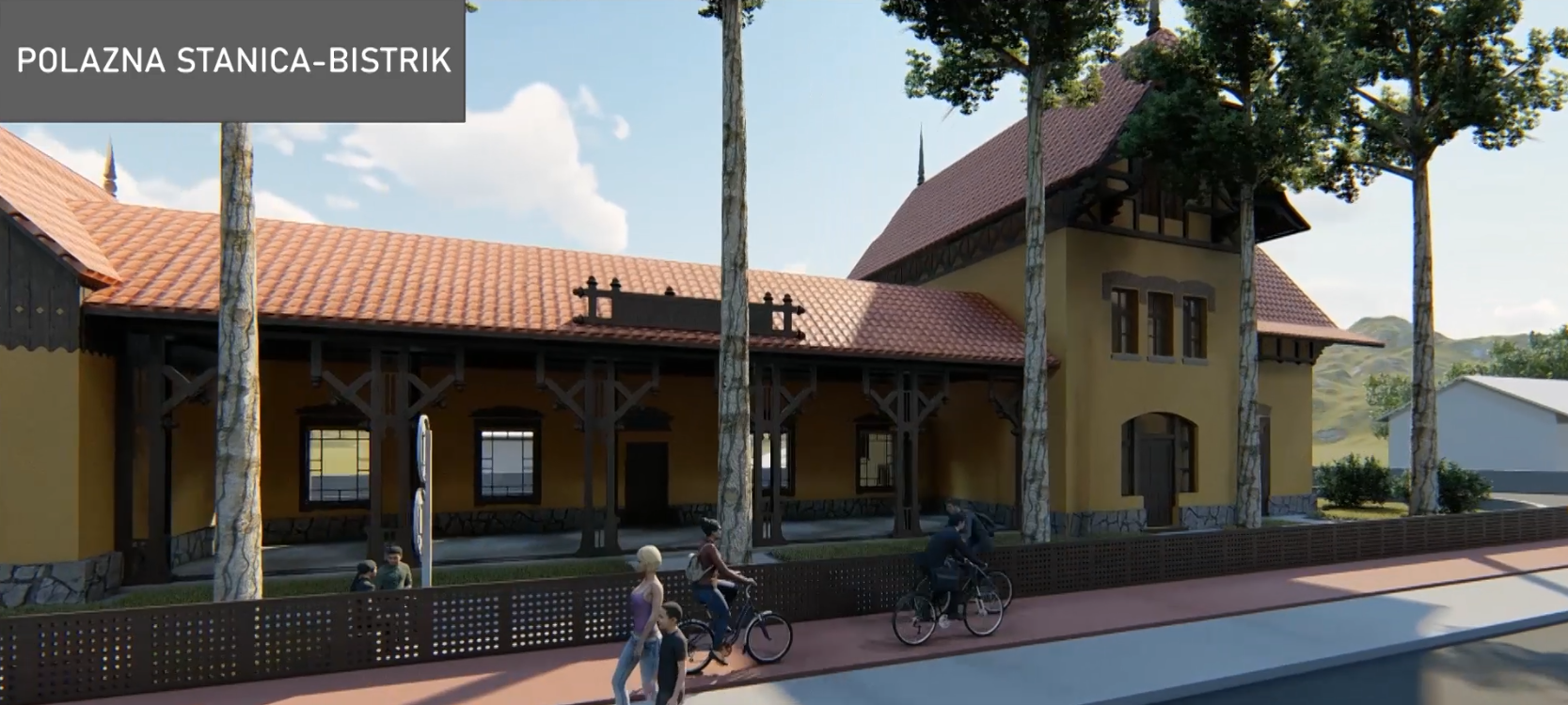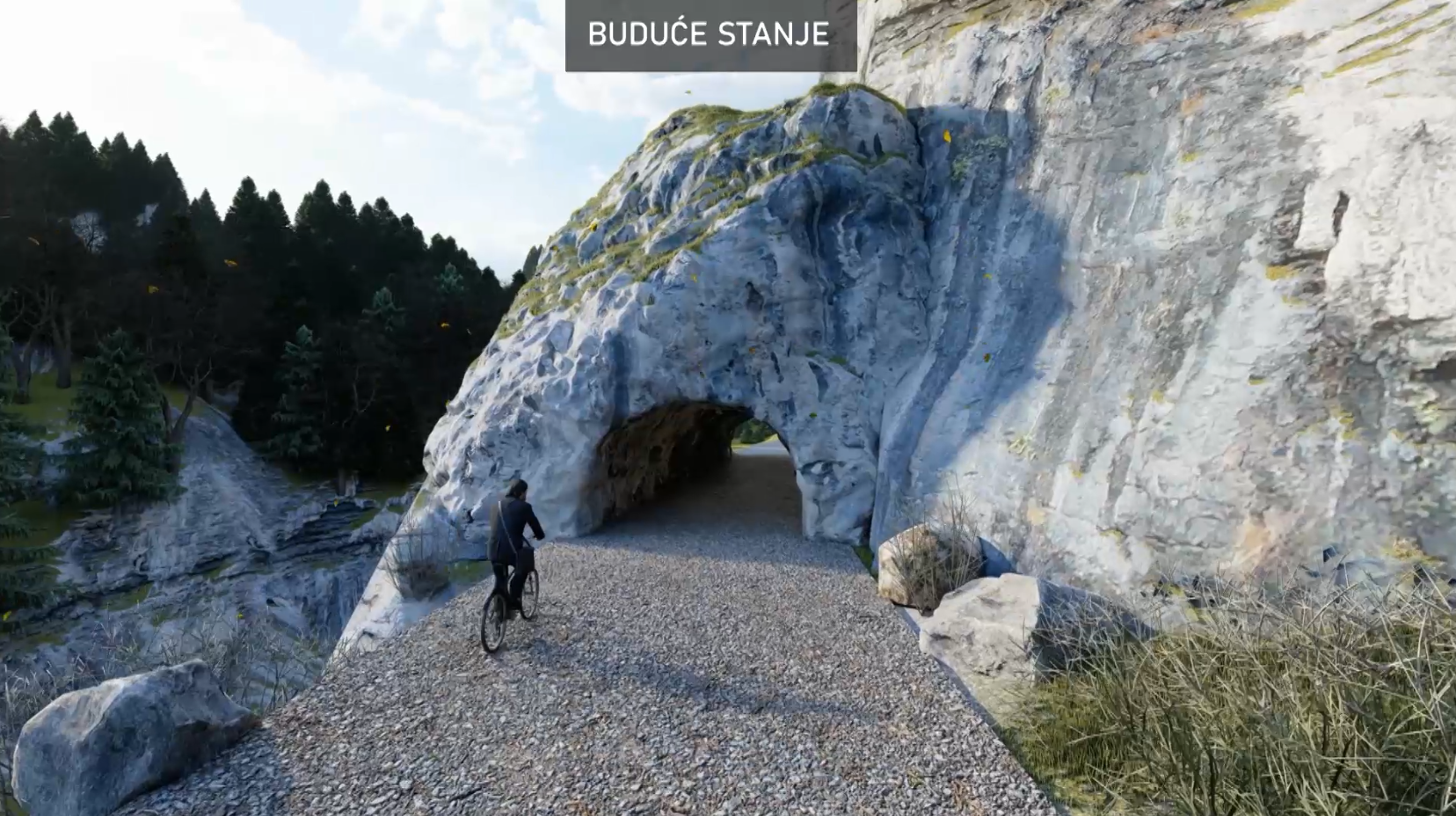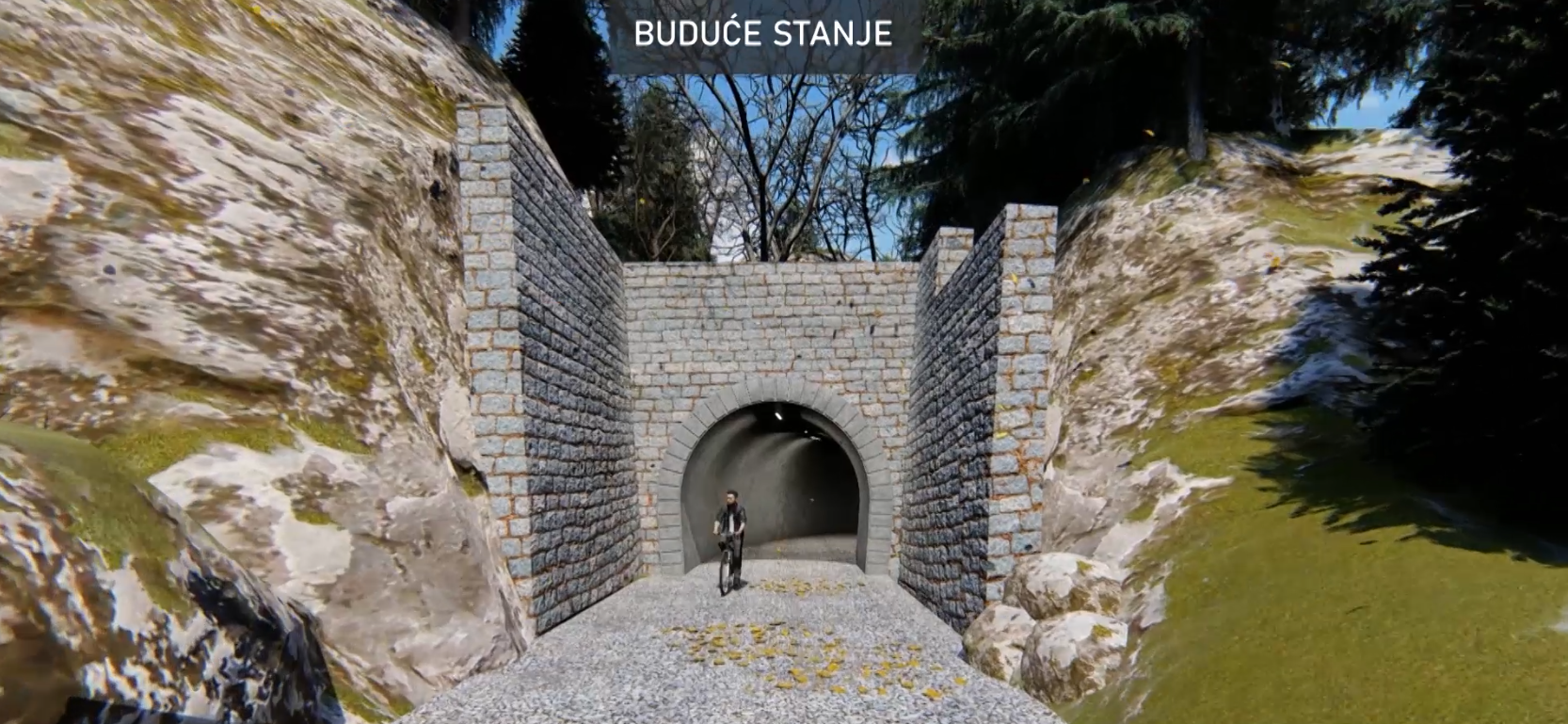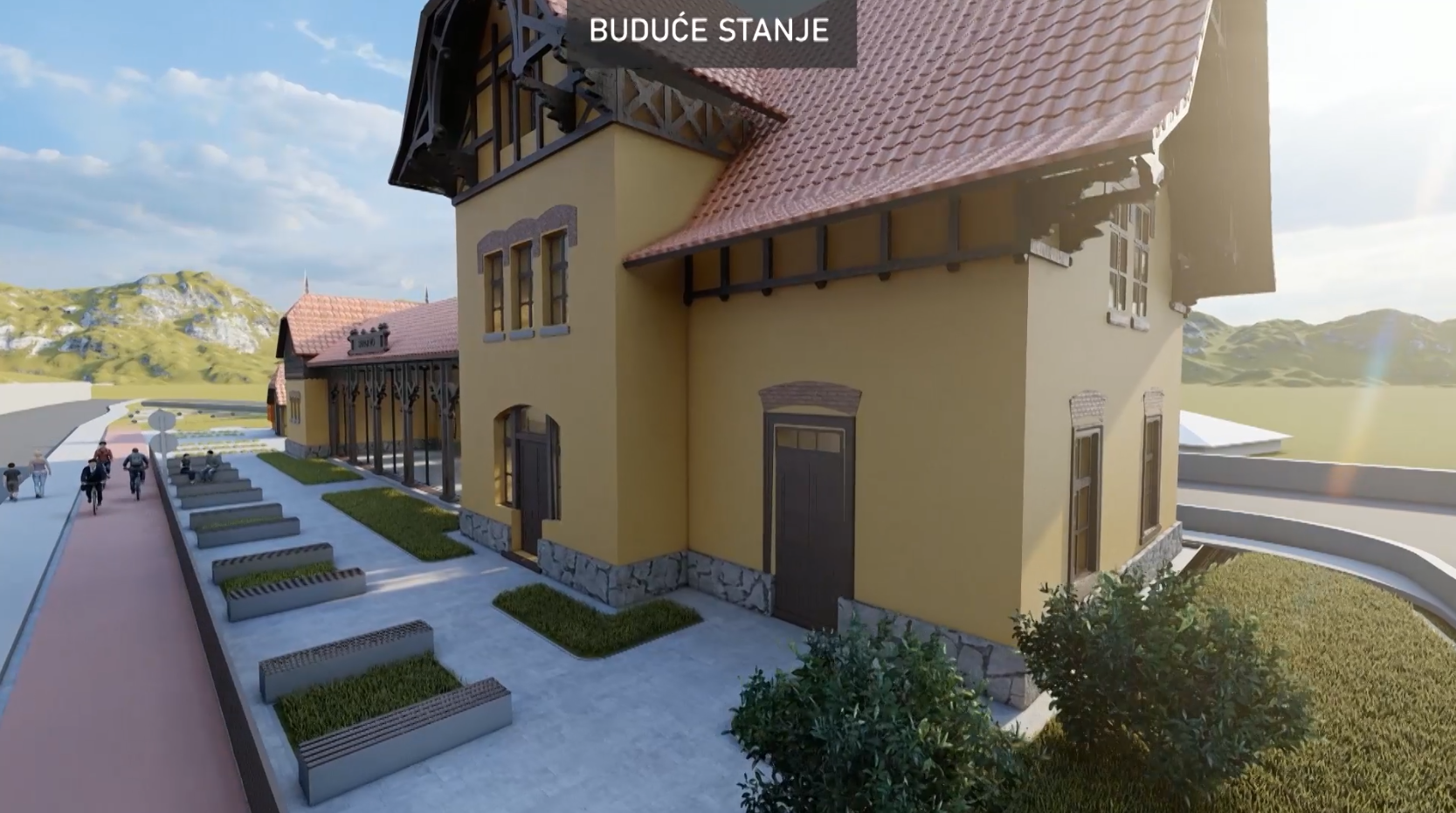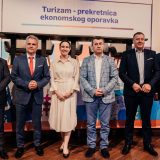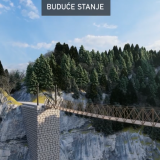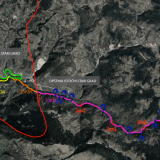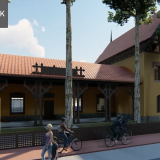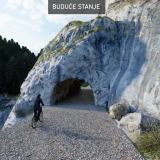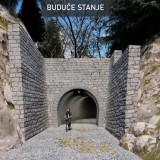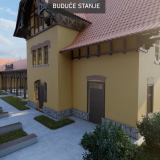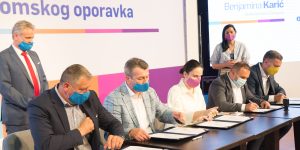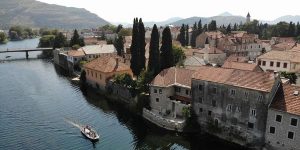Blog by Head of EU Delegation and EU Special Representative to BiH, Ambassador Johann Sattler
Heads of City of Sarajevo, City of East Sarajevo, municipalities Sarajevo Stari Grad, East Stari Grad and Pale signed an agreement last week on the rehabilitation of the old railway line between Bistrik and Pale. The twisting track that wends its way along the side of the Miljacka Gorge will be turned into a 15-kilometre cycle and walking path. The European Union is working with the authorities of the two cities and the three municipalities on this project which will give the embankments, tunnels and bridges along the route – some of which are remarkable and elegant examples of late 19th century engineering – a new purpose. It will create jobs and provide a unique recreational resource for citizens as well as tourists. The scheme has been talked about for years. What has been missing until now has been the administrative coordination to produce an agreed development plan and secure investment.
Tourism can – and should – be an engine of prosperity, but the potential isn’t being tapped. The Sarajevo-Pale path can serve as a model for eco-friendly, public-private projects throughout the country.
Unfortunately, those who work in the tourism sector often have to swim against the tide – the business environment makes it hard to offer a competitive product. That is why we need a fresh approach.
At a tourism conference last week organised by the EU and the BiH Ministry of Foreign Trade and Economic Relations the issues raised by people whose livelihoods depend on tourism were illuminating. Participants of the conference highlighted, among other matters, the need for a compelling BiH brand that can be developed and presented to international investors and potential visitors. The image of Bosnia and Herzegovina has to be renewed and it has to be made much clearer: this is a country with a unique cultural heritage, an infinite variety of extraordinary geographical features, and a distinctive tradition of hospitality.
But to have a campaign, you must first have a strategy. Currently, despite persistent efforts over the years, Bosnia and Herzegovina doesn’t have an overarching tourism strategy. For an industry that accounts for 10 percent of GDP – and could account for much, much more – this flies in the face of common sense.
At last week’s conference experts and professionals spoke persuasively about the things they need the authorities to do in order to create a competitive environment – they want transparency, legal clarity, and an intelligent and responsible approach to developing infrastructure. You may have the best hotels and the finest restaurants in the world, but you need good roads, better airports, you need better connectivity with the region and the world.
One participant noted that a lot of progress has been achieved through the hard work and determination of individual restaurateurs, hoteliers and tour operators. There is a great deal of expertise, but this is not being applied in a positive environment. In the meantime, other countries are taking a more systematic approach. In the coming years, tourists may start going to places like Georgia and Azerbaijan instead of Bosnia and Herzegovina because those countries are implementing well-thought-out tourism-development strategies. During the conference, tourism ministers from state and entity levels pledged to speed up their efforts and put in place a strategic framework by the end of the year.
As I listened to the discussion I thought about my own experience in this country – walking, climbing, cycling, exploring town and country. Living and travelling here has been a process of continuous discovery for me, and it has been a privilege. That privilege can be extended to hundreds of thousands of visitors if the correct steps are taken right now, as global tourism markets reopen after the pandemic.
In the last twelve months, the EU has disbursed jointly with the German Government EUR 1.6 million in grants to companies working in the BiH tourism sector through the EU4Business program. This year we have launched a new EU4Business Recovery project to help alleviate the economic impact of the pandemic.
Tourism can create jobs; it can sustain families; it can protect rather than damage the environment; and it can help Bosnia and Herzegovina move towards long-term prosperity. For that to happen, sensible administrative solutions have to be implemented – like the ones needed to create the new path which will go from Bistrik to Pale. I call on the authorities to live up to the commitments they made during the Tourism Conference and in this way help the tourism sector live up to its considerable potential as well as provide opportunities and income for the thousands of hard-working employees that depend on tourism. The European Union will continue to support this work and the BiH tourism sector. With a new approach from the authorities, the country’s tourism professionals can certainly succeed.

